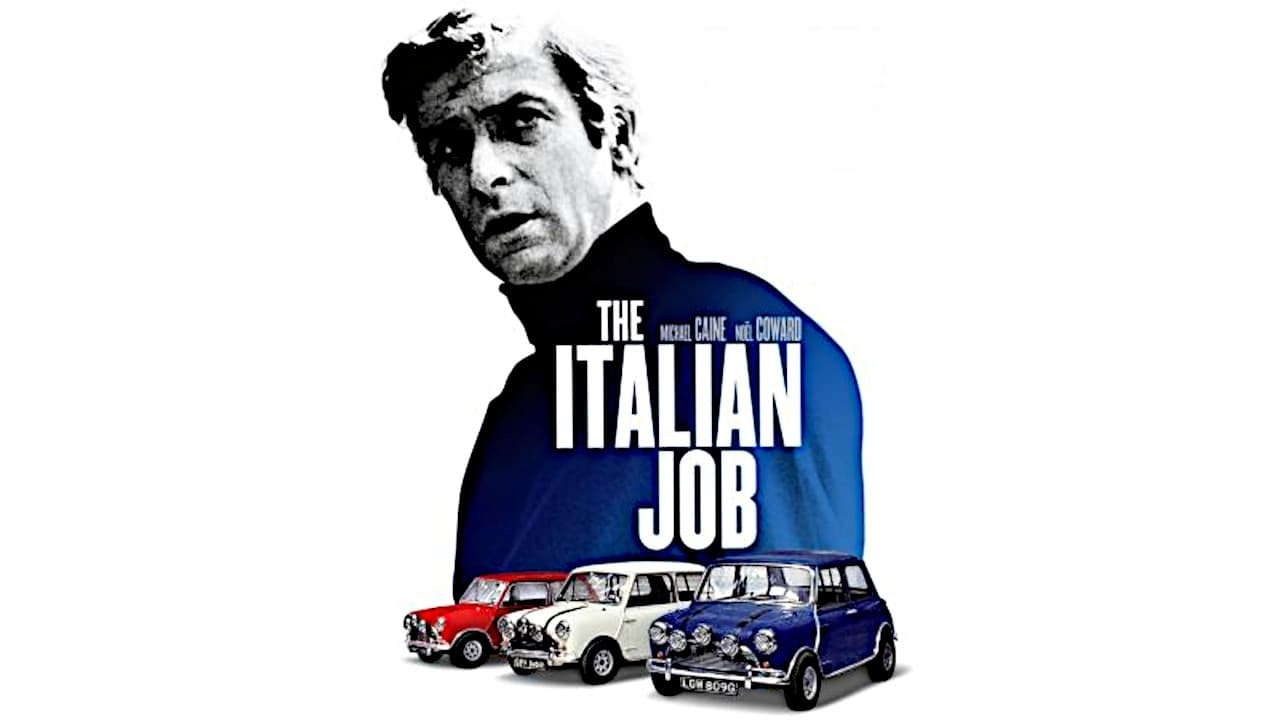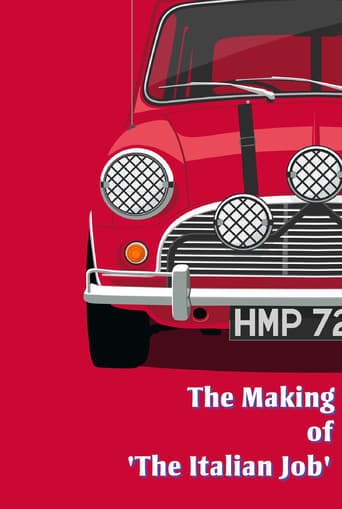Incannerax
What a waste of my time!!!
DipitySkillful
an ambitious but ultimately ineffective debut endeavor.
Sienna-Rose Mclaughlin
The movie really just wants to entertain people.
Brenda
The plot isn't so bad, but the pace of storytelling is too slow which makes people bored. Certain moments are so obvious and unnecessary for the main plot. I would've fast-forwarded those moments if it was an online streaming. The ending looks like implying a sequel, not sure if this movie will get one
movieman_kev
This 69 minute documentary on the making of "the Italian Job" can be found on the Special Collecter's Edition of the aforementioned movie. It's split in 3 parts or you can watch them in a 'play all' option. The first part "The Great Idea" focuses on the fruition of the story for the movie, the second "The Self-Preservation Society" deals with the supporting cast, and the last segment "Get a Bloomin' move on" focusing on the cars and music. All these segments feature informative interviews and learning more about the already great movie, made me appreciated the film all the more. Easily among the best documentaries that I've seen. And while it's certainly not in the top echelon ("Full Tilt Boogie", "Apocalypse Soon", "Heart of Darkness", Etcatra) It's still worthwhile viewing.My Grade: B
Chip_douglas
Part one : The Great Idea. Screenwriter Roy Kennedy Martin reveals the origins of The Italian Job: he actually stole the idea for a robbery involving the Turin computer system from his brother. Director Peter Collinsons' life story is told by his widow Hazel. Since Noel Coward sponsored the orphanage Peter grew up in, the director got 'The Master' to play against type as Mr. Bridger. Next up everybody praises The Cainemaster, even though his busy schedule did not allow him to make an appearance. They did find some of the other gang members, but you probably won't recognize any of them from the picture. Director of Photography Dougie Slocome also appears, and unlike the Indiana Jones DVD, we get to see his bad eye (in the Jones documentary they went out of their way not to show the right side of his face, making it seem far more gruesome than it actually is).Part Two: The Self Preservation Society. This segment focuses on the supporting cast. Apparently the original screenplay was a lot more serious, but when well known comic actors were drafted to film cameos it became broader and a bit raunchier. For instance, Professor Peach was originally obsessed with toy trains instead of BIG ladies. Hazel Collinson talks about being her husband's good luck charm in all his films, and they managed to track down John Clive, who had one memorable scene as the garage manager. Apparently Valerie Leon was unavailable to comment on her bit-part. It does feel a bit like one of those Doctor Who conventions where people who never had a speaking part in their lives come to sell autographs. Part Three: Get a Bloomin' move on. Finally we get to the real stars of The Job: the mini coopers. Everybody complains that the great rooftop stunt should have been shot from up higher and they mention the only deleted scene on the DVD (that should have stayed hidden). The various aborted endings are briefly discussed as we learn that producer Mike Deely and Bob Evans actually came up with the fantastic cliffhanger instead of Kennedy Martin. Just when you think they have said it all, Don Black appears to talk about the songs and how Michael Caine's drinking songs inspired Q to write 'The Self Preservation Society'. Finally the untimely death of Peter Collinson is mentioned, because it's always good to end a documentary on a sad and thoughtful note.8 out of 10

